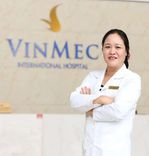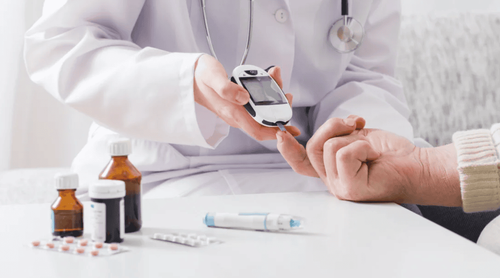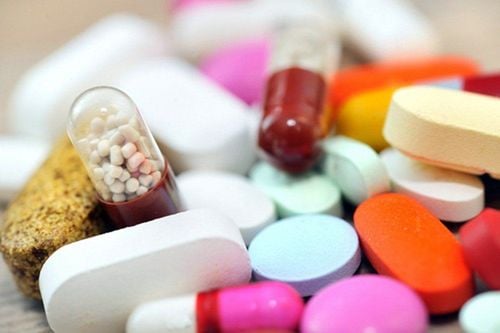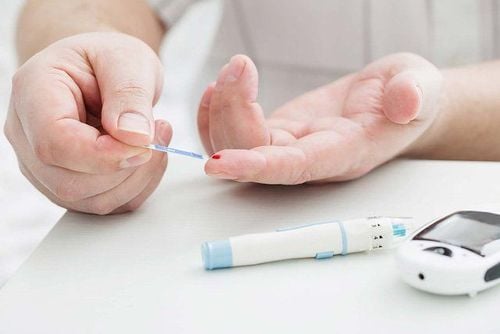This is an automatically translated article.
This article is professionally consulted by Master, Doctor Vu Thi Duyen - Department of Medical Examination & Internal Medicine - Vinmec Hai Phong International General Hospital.Type 2 diabetes is a chronic disease that usually occurs in people aged 40 years or older, has family factors or is caused by being overweight or obese. The disease progresses silently, with few symptoms or even no symptoms, but only when complications of the disease are detected, the patient will know that he or she has diabetes.
1. What is type 2 diabetes?
Type 2 diabetes or type 2 diabetes is a disorder of carbohydrate metabolism characterized by hyperglycemia due to both defects in insulin secretion and insulin's effects on the body, commonly known as insulin resistance. .The primary mechanism of disease in the early stages of type 2 diabetes is insulin resistance, which means that the body has enough insulin but cannot use insulin properly or the insulin does not function properly. Insulin is the bridge that brings the most important food source in the body, which is glucose, into the cells, from which the cells use it to produce energy for the body.
2. High risk factors for type 2 diabetes
High blood pressure is a major risk factor for diabetes. Hypertension is defined as the pressure of the blood against the vessel wall of 140/90 mmHg or more. Obesity: People who are overweight or obese are at risk of developing type 2 diabetes because excess body fat promotes insulin resistance. Pre-diabetes: This is a condition in which glucose tolerance is impaired but does not reach the point of diagnosis of diabetes. Without timely glucose control, more than 50% of patients will progress to type 2 diabetes after 5-10 years. Race: Hispanics, African Americans, Native Americans, and Asians are more likely to get this condition. Family history of type 2 diabetes: Having a parent or sibling with type 2 diabetes increases your risk of developing type 2 diabetes. Dyslipidemia: People with dyslipidemia have an increased risk of developing type 2 diabetes. insulin resistance easily leads to type 2 diabetes. Women with polycystic ovary syndrome (PCOS). Mental health problems: Including schizophrenia, bipolar disorder, depression, or taking antipsychotic medications all increase the risk of type 2 diabetes. Age: 45 years and older increases the risk. risk of type 2 diabetes. Unhealthy living and lifestyle: such as smoking a lot, drinking a lot of alcohol, exercising less. So, the more high-risk factors in the same patient, the higher and faster the likelihood of developing type 2 diabetes.3. Common symptoms of type 2 diabetes
Frequent urination: Frequent or frequent urination is a sign that your blood sugar is high, it has also entered the urinary tract. Or thirst, dry mouth: Frequent urination will increase the body's need to use water to compensate for the lost water. This will stimulate the patient to always feel thirsty and drink more water. Craving More and Faster Hunger: One of the functions of insulin is to stimulate hunger. Therefore, high insulin levels in the body will lead to an increased feeling of hunger and desire to eat. Unusual weight loss or gain: Unusual but unexplained weight gain or loss is a hallmark of type 2 diabetes.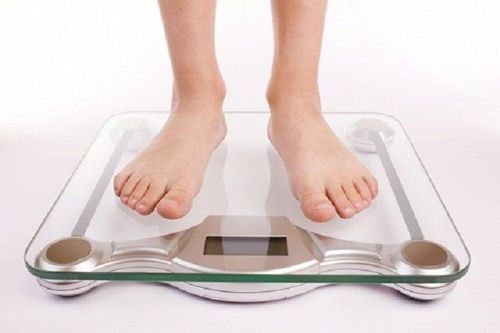
4. Dangerous complications of type 2 diabetes
Heart and artery disease Type 2 diabetes causes plaque in the arteries. This sticky substance slows blood flow and increases the risk of blood clots. It leads to hardening of the arteries, also known as atherosclerosis, making it easier to have a heart attack or stroke.Kidney complications Having type 2 diabetes increases the risk of chronic kidney disease. Type 2 diabetes is the leading cause of kidney failure today. Controlling blood glucose, blood pressure, and cholesterol can reduce the risk of this complication.
Damage to the eye High levels of glucose in the blood can damage the small blood vessels that carry oxygen and nutrients to the retina, an important part of the eye. This is called diabetic retinopathy and it can lead to vision loss.
Peripheral nerve damage Over time, uncontrolled type 2 diabetes and high blood sugar can damage nerves, especially peripheral nerves. Symptoms include: Tingling, numbness, pain, and pins and needles sensations - often in your fingers, hands, toes, or feet.
Injury to the feet Damage to the nerves in the feet or poor blood flow to the legs increases the risk of various foot complications. Without treatment, cuts and blisters can become severely infected, often difficult to heal, and may eventually require amputation of the toe, foot, or leg.
Complications teeth and gums High blood sugar creates conditions for bacteria to create plaque. Plaque build-up leads to tooth decay and gum disease. Severe gum disease can damage teeth and even lead to tooth extraction.
Complications in pregnancy High blood sugar can be dangerous for both mother and baby. The risk of miscarriage, stillbirth, and birth defects is higher when diabetes is not well controlled. For the mother, diabetes increases the risk of ketoacidosis, diabetic retinopathy, gestational hypertension, and preeclampsia.
Affect quality of life especially sex life Diabetes can damage the blood vessels and nerves in your genitals. This can lead to loss of sensation and difficulty reaching orgasm. Women are also prone to vaginal dryness. About 1 in 3 people with diabetes will have some form of sexual trouble.
5. Control Type 2 Diabetes

Control the amount of gkucose in the blood by changing the diet and losing weight. That will also reduce your risk of complications. Eat more green vegetables, limit fat and protein, cut calories.
Exercise regularly with light walking to maintain body weight and remove excess fat. Try to exercise for 30 minutes most days of the week.
Stress can raise blood pressure and blood sugar levels so take a break like breathing deeply, meditating or talking to a loved one or friend.
Check blood sugar regularly with a personal capillary machine: Use a blood glucose meter to check blood sugar or go to medical facilities to check. Regular blood sugar testing will let you know if your lifestyle and activities are effective or not so that you can plan to change effectively.
In case the patient cannot control blood sugar with diet therapy and exercise therapy, drug treatment will be required. Your doctor will prescribe one or more oral diabetes medications other than insulin depending on the patient's condition. In case the use of oral antidiabetic drugs is not effective, the patient can combine insulin therapy or switch to insulin only.
Currently, Vinmec International General Hospital offers a package of Diabetes Screening - Dyslipidemia for customers with signs of type 2 diabetes for the purpose of early diagnosis and screening of diseases based on Quantitative blood tests, oral administration (for customers with doubtful fasting blood sugar results) ...... From there, the doctor will draw conclusions and give prevention advice. disease prevention as well as appropriate and scientific treatment for the patient.
Master. Doctor. Vu Thi Duyen has more than 10 years of experience in general medical examination and treatment, especially has strengths in examination and treatment specialized in nephrology - Endocrinology.
The doctor has participated in many domestic and foreign seminars and is currently a Nephrologist - Endocrinology Department of General Internal Medicine, Vinmec Hai Phong International General Hospital.
Please dial HOTLINE for more information or register for an appointment HERE. Download MyVinmec app to make appointments faster and to manage your bookings easily.
Article referenced source: Webmd.com